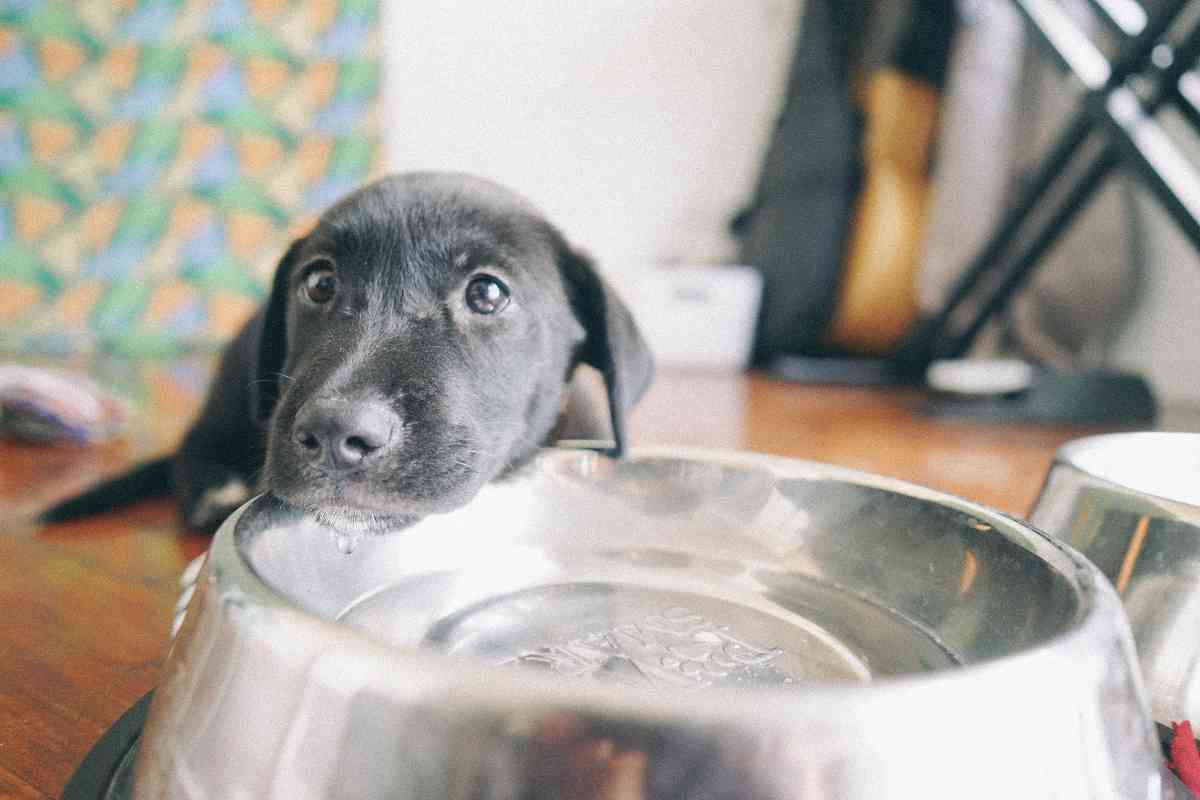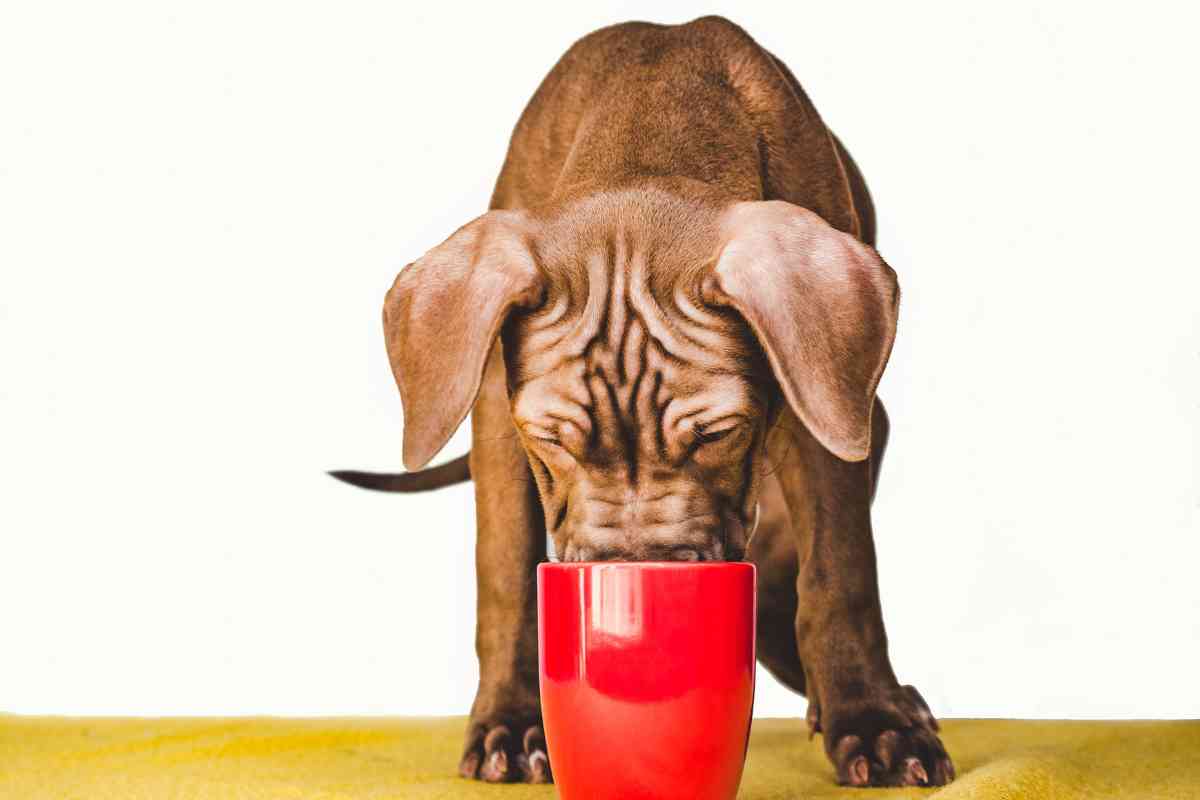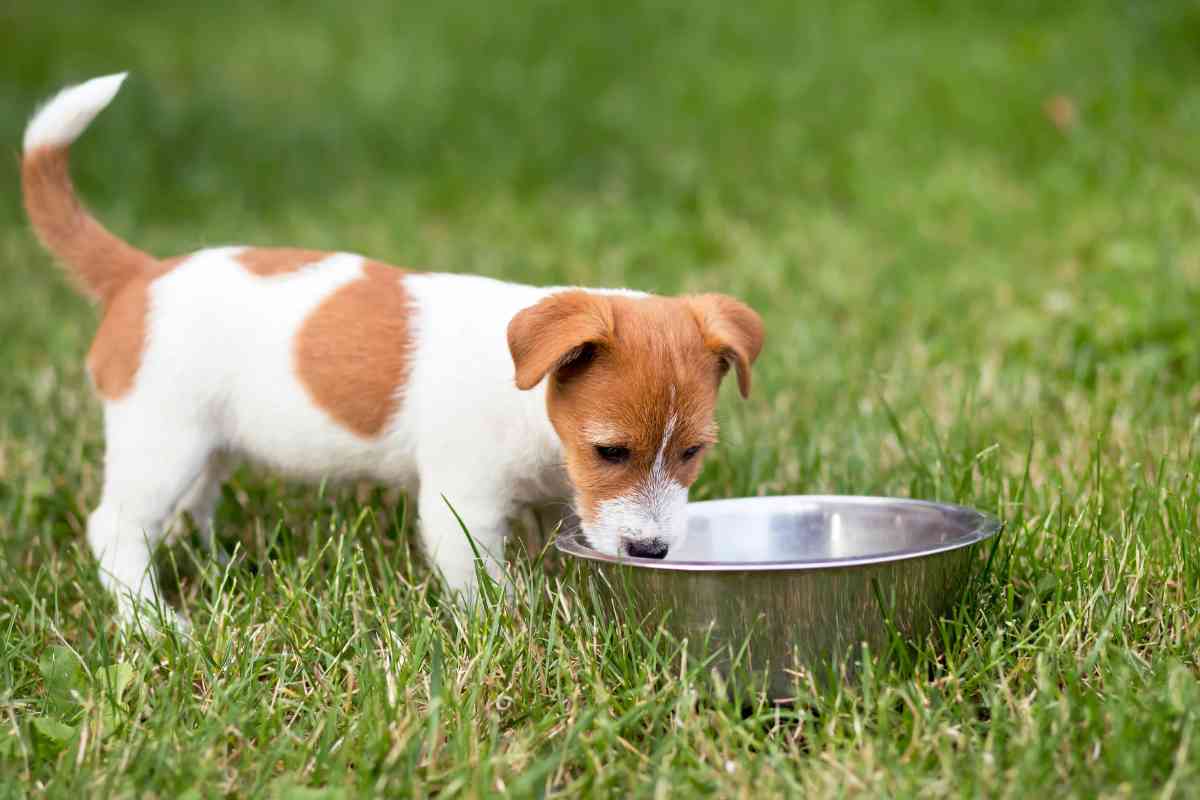How Much Water Should a 13-Week Puppy Drink? Daily Hydration Guidelines
Determining the right amount of water for a 13-week-old puppy is crucial to its well-being and overall health. We understand that proper hydration is one of the most important aspects of a young dog’s care. Puppies at this tender age are tentative in their actions, including how they drink water. Since they are still growing, their needs for water are greater on a per pound basis compared to adult dogs. Therefore, it is important for us to ensure they get enough water to avoid dehydration, which can cause serious health issues.

Check out my related post, How To Give Your Puppy Water For The First Time
How Much Water Should a 13-Week Puppy Drink?
For a 13-week-old puppy, proper hydration is crucial. They typically need one-half to one ounce of water per pound of body weight each day. For instance, a 10-pound puppy should have between 5 and 10 oz of water daily.
Ensuring constant access to fresh water is vital, as puppies at this age are transitioning from mother’s milk to dry food or wet food.
Recognizing Hydration Levels
Identifying a well-hydrated puppy is essential. Look for moist gums and skin that snaps back quickly. Conversely, dehydration signs include dry gums, lethargy, and reduced skin elasticity. If a puppy shows dehydration symptoms, offer water immediately and consult a vet.
Factors Influencing Water Intake
A puppy’s water intake varies with activity level and environment. In hot weather or after exercise, puppies might need more water. Keep an eye on their behavior, bathroom breaks, and water consumption to adjust their water needs.
Monitoring and Adjusting Water Intake
Begin with offering half a cup of water every two hours. Adjust based on the puppy’s size, activity, and the climate. Watch for excessive thirst or reduced interest in water. Puppies’ water needs are higher per pound than adult dogs.
Dehydration Risks and Management
Dehydration can lead to serious health issues like kidney disease or urinary tract infections. Immediate steps include offering water and consulting a vet if symptoms persist.
Ensuring a 13-week-old puppy remains properly hydrated supports their overall health and vitality. Remember, fresh water availability and careful monitoring are key to a happy, healthy puppy.

Practices for Ensuring Adequate Hydration
Related Post! How To Switch Your Dog From Puppy Food To Adult Dog Food
Ensuring that our puppies are well-hydrated is vital for their health and development. Adequate water intake supports their digestion, assists with bladder control during potty training, and helps maintain overall good health.
Setting a Hydration Schedule
It’s crucial to establish a regular puppies’ water schedule. This not only supports their hydration but also aids in bladder control during potty training. Offer fresh water:
- Morning: 7 AM
- After meals: 8 AM and 6 PM
- Post-playtime: Varies
- Bedtime: 9 PM
Consistency in this routine is key for their development.
Choosing the Right Water Bowl
Selecting an ideal dog’s water bowl is critical. Ensure it’s stable, size-appropriate, and refilled with fresh water. Regular cleaning is essential to prevent bacteria build-up.
Recognizing Hydration Issues
Stay vigilant for signs of dehydration or overhydration, which can lead to health issues like diabetes or bladder infections. Symptoms to watch for include dry gums, changes in urine, or loss of skin elasticity. Consulting a veterinarian is crucial if any concerning signs are observed.
Incorporating Hydration Boosters
Consider adding ice cubes, bone broth, or chicken broth to entice them to drink more, especially if they’re showing signs of reduced water content intake. These can add flavor and encourage hydration.

Conclusion
In summary, ensuring proper hydration in puppies is an essential aspect of their care. Regularly refilling your puppy’s water bowl and monitoring their intake are key steps. Be attentive to signs like excessive panting, pale gums, or changes in salivation and pupils, which could indicate hydration issues.
Incorporating playful elements like adding watermelon chunks or ice cubes to their water can serve as both rewards and encourage drinking. Also, consider the type of food being offered; dry kibble might necessitate a small amount of water to aid in digestion. Regular tap water is typically sufficient, but always ensure it’s fresh and clean.
Remember, every pup is different, and their needs can vary based on size (measured in lb) and activity level. Consistent praise and positive reinforcement during hydration can help establish good habits, supporting both physical coordination and overall health. Stay observant for signs of abnormal thirst or polydipsia, and consult a veterinarian if concerns arise. Proper hydration is a simple yet vital part of caring for your growing puppy.